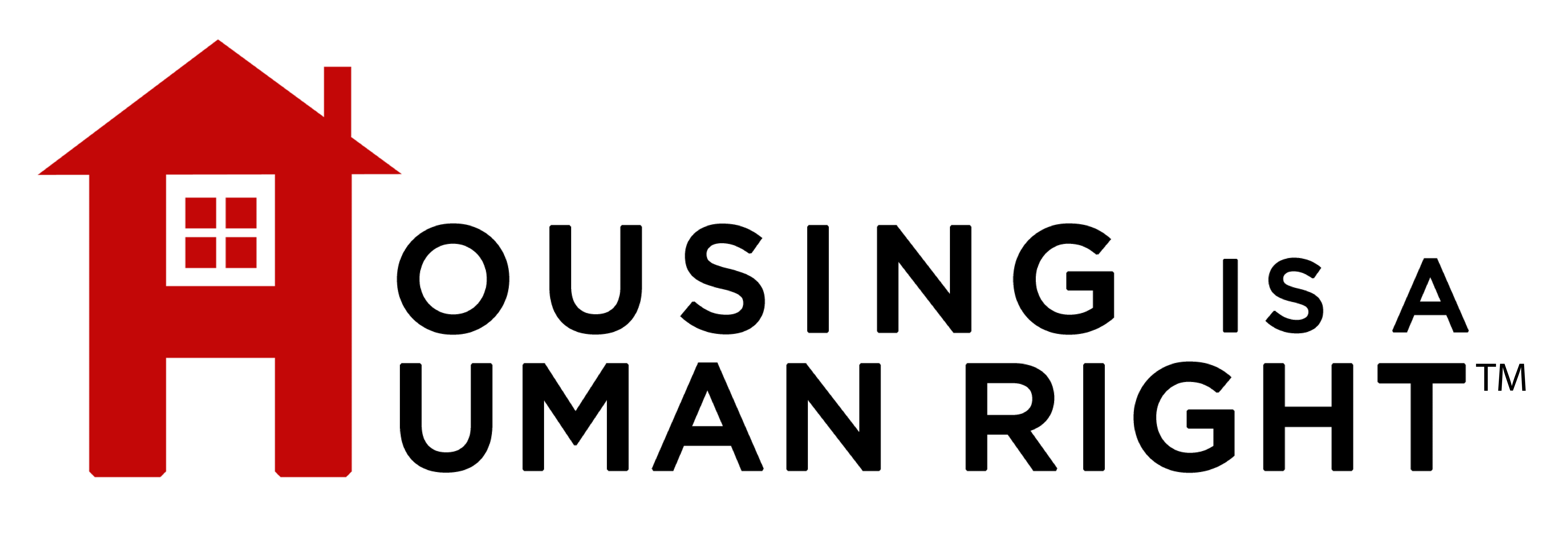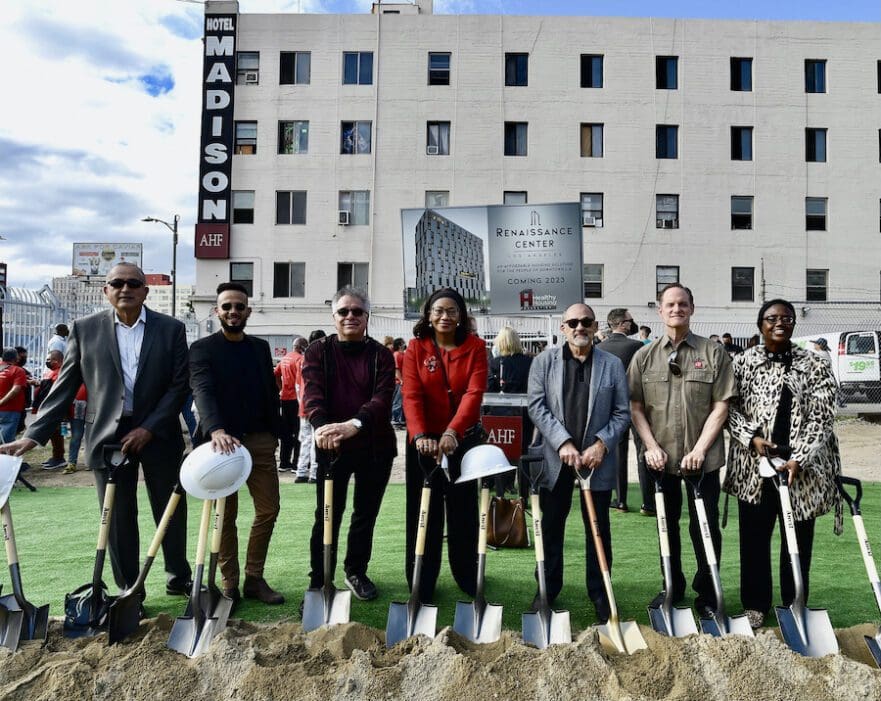AIDS Healthcare Foundation, the parent organization of Housing Is A Human Right, has again shown its commitment to urgently solve the housing affordability and homelessness crises. The nonprofit has purchased a majority stake in Crate Modular, a leading producer of prefab modular housing and educational buildings. The partnership will help AHF build more low-income and homeless housing.
In 2017, AHF created a housing provider division, Healthy Housing Foundation, and a housing advocacy division, Housing Is A Human Right. It was a response to the worsening housing affordability and homelessness crises that were impacting AHF patients, especially in Los Angeles and San Francisco.
Since then, Healthy Housing Foundation has utilized the adaptive reuse of hotels and motels in the Los Angeles area and other parts of the country, quickly renovating those buildings and turning them into low-income and homeless housing. HHF operates more than a dozen buildings that provide more than 1,850 housing units, with hundreds more in the pipeline.
In addition, Housing Is A Human Right and AIDS Healthcare Foundation have sponsored two ballot measures to end statewide rent control restrictions in California. Big Real Estate, though, spent more than $175 million in campaign cash to kill those initiatives.
HHR has also carried out numerous advocacy campaigns to pass tenant protections and to rein in the runaway greed of the real estate industry, and HHR and AHF are pushing forward the 2024 Justice for Renters Act, a statewide ballot measure that expands rent control in California.
In May, AHF and Crate Modular finalized an agreement to work together.
As part of the arrangement, Crate and AHF will continue to run their organizations independently. Crate will produce the modular housing units for AHF’s planned Renaissance Center, a 216-unit, 15-story low-income housing complex on Skid Row in Los Angeles. Crate also will serve as a preferred vendor on other AHF low-income housing developments moving forward.
“Traditional construction is too costly in time and resources to create more affordable housing quickly,” said Michael Weinstein, president of AIDS Healthcare Foundation, in a statement. “Modular construction is another solution in addition to adaptive reuse. To bring this to fruition, we worked with five other modular partners, but for various reasons, none of them worked out. Crate Modular would have closed their doors had we not stepped in with an investment.”
Weinstein added: “The national homelessness crisis is escalating rapidly, and AHF is committed to being part of the solution wherever we can.”
Crate Modular Chief Executive Officer Rich Rozycki said in a statement, “Crate’s approach to building shortens the development cycle compared to conventional site-built construction, reduces waste, and produces stronger and far more durable buildings. Our goal is to bring cost-efficient, high-quality, problem-free building solutions to each of our clients.”
Rozycki added: “We are grateful for AHF’s investment and partnership and are excited to help meaningfully address the need for affordable, low-income housing in Los Angeles and wherever AHF and other clients may seek to fill this rapidly growing need.”
In June, officials revealed that homelessness increased in Los Angeles County by nine percent to 75,518 homeless people and in the city of L.A. by 10 percent to 46,260 individuals. In addition, homeless deaths have increased for seven years in a row, according to the latest data. It all underscores the need for more low-cost, affordable housing now.
With the partnership with Crate Modular, AIDS Healthcare Foundation carries out its housing agenda known as the “3 Ps”: protect tenants through rent control and other protections; preserve existing affordable housing; and produce more low-income and homeless housing. Unlike the trickle-down housing solutions pushed by the real estate industry, the 3 Ps help those who need it most.
(Above picture of AHF’s groundbreaking ceremony for the Renaissance Center in Los Angeles.)

